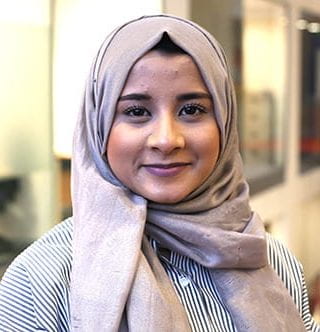We are a team of researchers, clinicians and people with lived experience from City University London and the universities of Stirling, Oxford, York, Hull and Leeds, the NCT and Maternal Mental Health Change Agents. MAP is funded by the National Institute of Health Research, Health Services and Delivery Research programme. The team are:
Susan Ayers
Professor of Maternal and Child Health, City, University of London.
I am a psychologist specialising in perinatal mental health, particularly anxiety and birth trauma. I am a mum and was a single parent for a number of years, which showed me first hand how important it is to do research to inform services and policy in this area. Women’s experiences are at the heart of what we do and I am delighted to be leading the MAP project which has the potential to change how anxiety is identified in maternity care. Every person who takes part in MAP helps make a difference. I am very grateful to all our MAP families and the MAP research team for helping make this happen.
Helen Cheyne
Professor of Midwifery, University of Stirling.
 I am a midwife and the Royal College of Midwives Professor of Midwifery. I am the lead researcher for the Scottish sites on the MAP project. Before I became a researcher I was a practicing midwife working in the NHS for 20 years, in Glasgow and in a rural maternity hospital. As a researcher I have remained committed to improving the health, wellbeing and experience of mothers and families through provision of evidence to inform maternity care providers and service users. I am delighted to be part of this exciting and important project.
I am a midwife and the Royal College of Midwives Professor of Midwifery. I am the lead researcher for the Scottish sites on the MAP project. Before I became a researcher I was a practicing midwife working in the NHS for 20 years, in Glasgow and in a rural maternity hospital. As a researcher I have remained committed to improving the health, wellbeing and experience of mothers and families through provision of evidence to inform maternity care providers and service users. I am delighted to be part of this exciting and important project.
Margaret Maxwell
Professor of Health Services Research, University of Stirling
 I have been involved in health services and mental health research for over 30 years. My background is in sociology, which brings a different perspective to understanding what influences our health and wellbeing, especially the influence of our social and economic circumstances throughout life. Sociology can also help us to understand how organisations (such as the NHS) and its healthcare professionals can influence health outcomes, and what works in the delivery and provision of care for different patient populations. I am delighted to be part of this research, which aims to find the best way of enabling midwives and other healthcare professionals to detect perinatal mental health problems.
I have been involved in health services and mental health research for over 30 years. My background is in sociology, which brings a different perspective to understanding what influences our health and wellbeing, especially the influence of our social and economic circumstances throughout life. Sociology can also help us to understand how organisations (such as the NHS) and its healthcare professionals can influence health outcomes, and what works in the delivery and provision of care for different patient populations. I am delighted to be part of this research, which aims to find the best way of enabling midwives and other healthcare professionals to detect perinatal mental health problems.
Rose Coates
Research Fellow, Centre for Maternal and Child Health Research at City, University of London.
I am psychologist working in the area of mental health in pregnancy and after birth. I have worked in this area for 10 years and had 2 children during this time, which has made me even more passionate about this research. I work with the NHS hospitals and clinical research networks involved in the MAP programme and am co-investigator on the project. I completed my doctoral research on the Assessment of Perinatal Mental Health Problems and work with a variety of methods. Finding out about women’s experiences and how we can improve them is at the core of all my work.
Louise Williams
Research Fellow, Maternal and Child Health, City, University of London
I am a psychologist and have worked in research for 13 years in the fields of cognitive ageing, stroke, and anxiety. Through my research and from my close relationships I have witnessed the effect that mental health issues such as anxiety and depression can have on women, and the impact it can also have on their family and close friends. Early identification of mental health issues is a vital step that can lead to women getting the support and treatment if they need it. I would like to thank all our MAP participants for taking the time to help with this research. Without you this research could not be conducted.
Andrea Sinesi
Research Fellow, University of Stirling
 I am the researcher for the Scottish sites in the MAP project. My background is in psychology and since I moved to the UK from Italy in 2009 I have worked in a variety of roles, including as a Children’s Centre Worker in Oxford and a Family Support Worker in Edinburgh. My doctoral research was on the development of a questionnaire to identify women experiencing high levels of anxiety during pregnancy. I am passionate about supporting and promoting women’s emotional wellbeing during pregnancy and after birth, and working on the MAP project is a fantastic opportunity to contribute to this area.
I am the researcher for the Scottish sites in the MAP project. My background is in psychology and since I moved to the UK from Italy in 2009 I have worked in a variety of roles, including as a Children’s Centre Worker in Oxford and a Family Support Worker in Edinburgh. My doctoral research was on the development of a questionnaire to identify women experiencing high levels of anxiety during pregnancy. I am passionate about supporting and promoting women’s emotional wellbeing during pregnancy and after birth, and working on the MAP project is a fantastic opportunity to contribute to this area.
Nazihah Uddin
MAP Research Assistant, Centre for Maternal & Child Health Research, City University of London
 I am a radiographer and completed my Masters in Clinical Research in 2019. I also work part time as the research assistant for Pregnancy MAP. I believe understanding the impact of mental health issues and how this can be supported and managed effectively is really important. Therefore, I am very pleased to be a part of MAP to make a difference to the care women receive during pregnancy.
I am a radiographer and completed my Masters in Clinical Research in 2019. I also work part time as the research assistant for Pregnancy MAP. I believe understanding the impact of mental health issues and how this can be supported and managed effectively is really important. Therefore, I am very pleased to be a part of MAP to make a difference to the care women receive during pregnancy.



